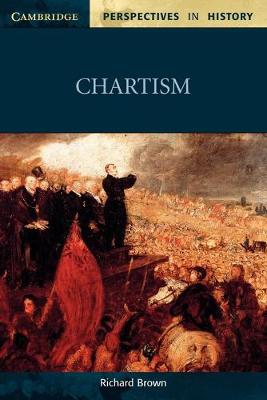Cambridge Perspectives in History
2 total works
This book considers the ways in which working people in the nineteenth century sought justice through the Chartist movement. Richard Brown poses fundamental questions about the movement and considers them through the interpretations of both contemporary and later historians. Central themes and episodes covered include a study of the emergence of Chartism, the Chartists and their leaders and an account of the three phases of Chartism from 1836 to 1848.
An engaging range of period texts and theme books for AS and A Level history. The years between the rise of William Pitt in the early 1780s and the repeal of the Corn Laws in 1846 saw Britain struggle with political and social tensions caused by the economic changes that began in the mid-eighteenth century. Changes in attitudes towards who could vote, how the poor should be treated, how towns should be governed and how popular protest should be conducted led to confrontations between different segments of society. Yet Britain escaped revolution. Resistance, radicalism and reform. Richard Brown explores key issues which help explain these developments of the period.

